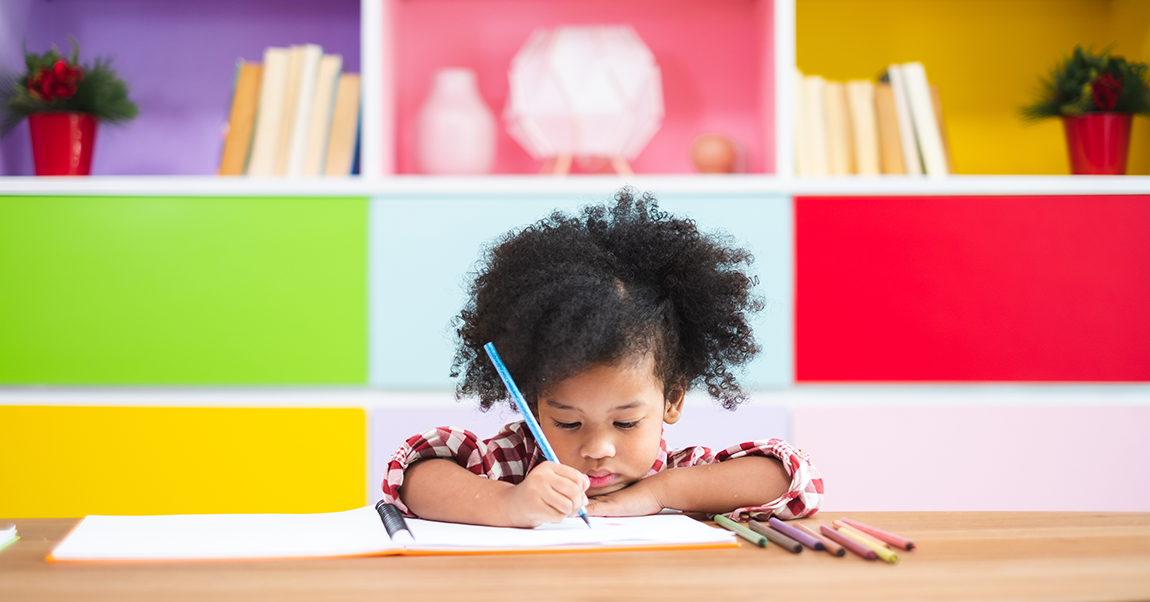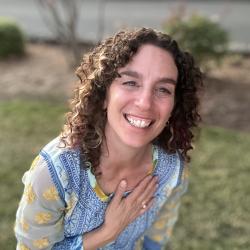
(With contributions by Casey Agena)
In a recent Facebook group, a parent posted, “Is there anything a 3-year-old can do independently?”
This was meant facetiously, I assume. The stream of responses ranged from the simple: “No!” to the sarcastic: “Mess up the house?” to sympathetic, tearful emojis. Some people did offer positive suggestions like craft projects and dramatic play. In fact, the short answer is: Yes.
As a long-time early childhood educator, I bristled a bit at this well-intentioned question and subsequent comments because I know that young children are more capable and independent than most adults usually give them credit for, given the right conditions. And what we are dealing with now is a novel set of conditions in which parents and children are working together from home, and new educational experiences will need to take into consideration individual personalities, family dynamics, and children’s specific needs. These activities will also need to be long-term and well-planned out, while allowing for flexibility.
Project Based Learning (PBL) can be a great option for our youngest learners, bridging school to home, linking academics to social and emotional learning, and offering an engaging and independent learning environment.
PBL may best be known for implementation in later elementary or secondary school, but it can begin at the much younger ages. Two colleagues and I recently wrote a book about implementing PBL in early childhood that sets out to dispel the many assumptions adults often hold about young children’s capabilities, and we now have a powerful opportunity in our own homes to see the potential of PBL for leveraging those very capabilities and promoting independent learning.
Parents are now being given myriad, sometimes overwhelming options for how to educate their kids at home. Many feel anxious about “getting it right,” whatever that even means. While older students can read and work through Google classroom assignments independently, or do rigorous PBL units or self-directed “Passion Projects” with guidance from a teacher or parent, younger children need more scaffolding. However, this does not mean that PBL won’t work in a home environment.
PBL can help invite young children to tackle authentic problems that are taking place in and around their homes.
They can investigate, How can we make less trash? How might we create a map of our homes to share with our friends? How can we create habitats for animals? And yes, there’s even a project that focuses on how to create a resource of activities for kids and families to do at home. Projects can be designed by drawing on kids’ interests, or by adapting existing projects for young learners.
With a little guidance and patience, parents can facilitate the inquiry process by observing children’s interests and following their curiosities.
This may require a shift in some parenting practices. As parents, we often feel we must answer every question a child asks. But rather than answering, parents can first respond with, “What do you think?” When given the opportunity, children usually share informed theories and ideas that can be expanded upon. If a child answers “I don’t know,” a next response could be, “How do you think we can find out?” When we let children lead the way, we often find remarkable and surprising opportunities for authentic learning.
Young children love to have agency. They are more engaged in learning when they feel competent and capable rather than being dependent on others. They take immense pride in the things they can do on their own, but it’s up to adults to first believe that they can do those things, and then to set the conditions for independent learning to take place. This begins with a shift in our mindset, and PBL offers parents a unique and powerful approach to teach and connect with young children at home, inspiring greater independence and a joyful purpose to learning.
Six Tips for Early Childhood PBL at Home
1. Set (flexible) routines: Both adults and young children usually benefit from some type of routine. While there is no need to be rigid, starting the day with a sense of the schedule (and sharing it with your child) helps set the tone and put young children at ease. If you are deciding to implement a short PBL unit at home, consider having a “Project Time” somewhere in your day.
2. Create agreements with your child: Rather than setting “rules” at home, co-create some shared agreements to increase your child’s investment and clarify expectations for the new learning space. Keep agreements simple and frame them using positive language. For example, instead of “Don’t make a mess” make it “Keep our things neat.” Resources from organizations like Responsive Classroom and EL Education can help.
3. Make friends with screens: There is certainly an abundance of caution about too much “screen time” for young children. However, there are fantastic resources that can support project work. Flipgrid is a perfect digital reflection tool that young children can use at home and with friends. Inquiry-based resources like Mystery Science and Brainpop Jr. support the inquiry process in fun, interactive ways.
4. Integrate creativity and hands-on learning: Many early childhood PBL units include art and design. Young children often can draw, paint, or use clay for a sustained period of time.
5. Engage in field work: Your home environment can serve as a great place to investigate and inquire. Encourage your child to explore and see things never noticed before.
6. Connect with others: Physical distance doesn’t mean social distance. Young children delight in connecting with their friends and seeing them on the computer. Projects inspire collaboration and can involve interviews at home or with extended family.
Sara Lev is the co-author of the upcoming book Implementing Project Based Learning in Early Childhood: Overcoming Misconceptions and Reaching Success (Routledge, 2020). She is a PBLWorks National Faculty member and a transitional kindergarten teacher in Los Angeles.
Casey Agena is an education consultant working with various organizations and companies. He lives in Seattle and is a parent of three children under the age of six.

